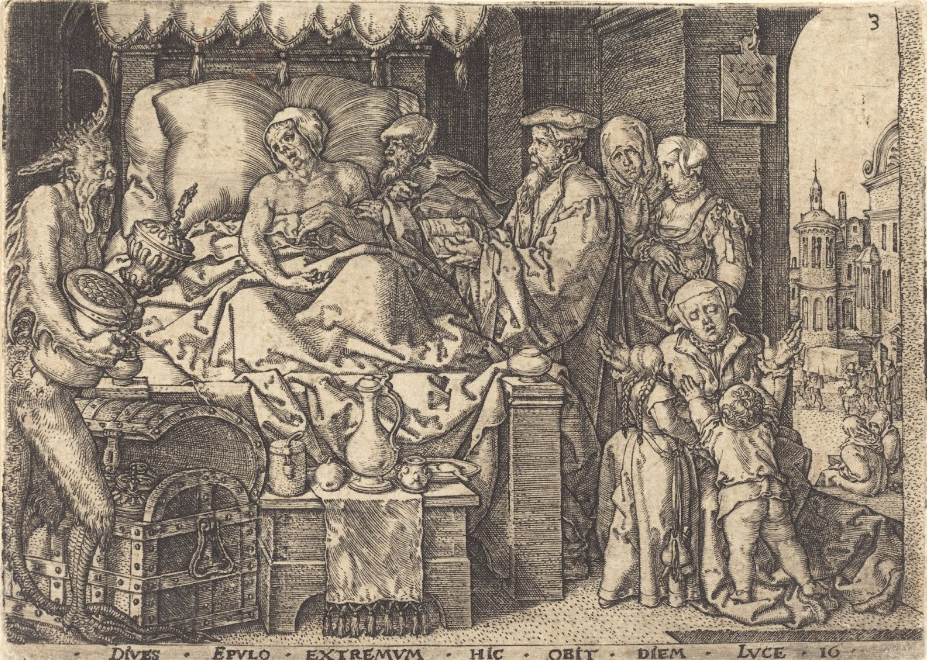The skies were smoky orange last week. That doesn’t have anything to do with today’s piece; I figured it was worth denoting. I love living in California.
About a month prior, I listened to a sermon on Luke 12:13-21. While I haven’t tackled this chapter specifically, its themes echo through articles I’ve already written (“Salvation for the Wealthy,” “The Imperative of Work,” “Resolutions,” “On Haman and Pettiness”). It is perhaps my favorite passage in the New Testament, so one could imagine that I was salty that the sermon felt slightly off (albeit admittedly adequate). I’d like to take a shot at this passage.
For context, the sermon ran as follows. As preparation, I recommend reading Luke 12:13-21 before reading the analysis. The pastor stated that the rich man’s wealth led to stress, to home improvements, to more stress, to his ultimate downfall. The pastor brought up the man’s servants (which were never mentioned). Jesus’s preface, “not even when someone has an abundance does his life consist of his possessions” might support such an interpretation.
The pastor theorized, as the wise wealthy man’s alternative: what if the rich man downsized, to a small barn or stable? What if he gave up his wealth to live amongst the people, spreading his wisdom amongst the masses? What if he sacrificed on behalf of the people, even to the point of death? As readily apparent as the analogy stands, not everyone can (or should) give up their God-appointed wealth and position to wander the countryside.
My interpretation and prescription differs. The rich man might be working hard and stressing for the moment, but his mind was set on relaxation. In fact, he never built the barn; he merely envisioned its construction. He spent as much time thinking about relaxing, eating, drinking, and celebrating as he did the expansion of his holdings. He thought that, with the work he’d done and then some, he wouldn’t need to work again. He would be right, but not as he expected. That night, God would demand his soul.
While the intent of the story is perhaps unknowable, some clues around the story hint toward its meaning. The final words by God ask, “Fool! This night your life is demanded from you, and the things which you have prepared – whose will they be?” One is reminded of the Tower of Babel, of the futility of the world against the sovereignty of God. One can lament the waste of food and treasure, great silos’ worth that could have fed the poor and now rots away by the grave of a fool. Jesus’s preface points to a much simpler lesson. Is someone’s life inextricably connected to his possessions? This passage is his answer: no. A man can be severed from his possessions in death, so they are severable in life.
Now, beyond mere hypothetical, there is application. I wouldn’t recommend dropping everything to roam the land, even though I’ve seen it done and will not refute God’s command for anyone. However, I suggest that the lesson to be learned runs contrary to the original pastor’s message. Don’t stop working. You should continue to gather the harvest for as long as God provides for the field. With great abundance or little, the worst thing you could do with God’s gifts is nothing. Your focus should never be on sloth. In fact, if you feel your workload is too easy at a certain point in time, try to make it harder. Volunteer for a homeless shelter. Cut back on expenses to support those in need. Do something with what God has given you, or the branch that bears no fruit will be pruned. Quite immediately, if today’s parable bears any indication.
Regardless of my interpretation, this passage is wonderful. Like much of the Bible, it has beautiful nuance and layers of meaning, all wrapped up in nine verses. It is truth; I know this both from the authority of the Bible and how it resonates within my worldview. I hope I’ve inspired similar thoughts in you readers, and I look forward to the next analysis!


Leave a Reply